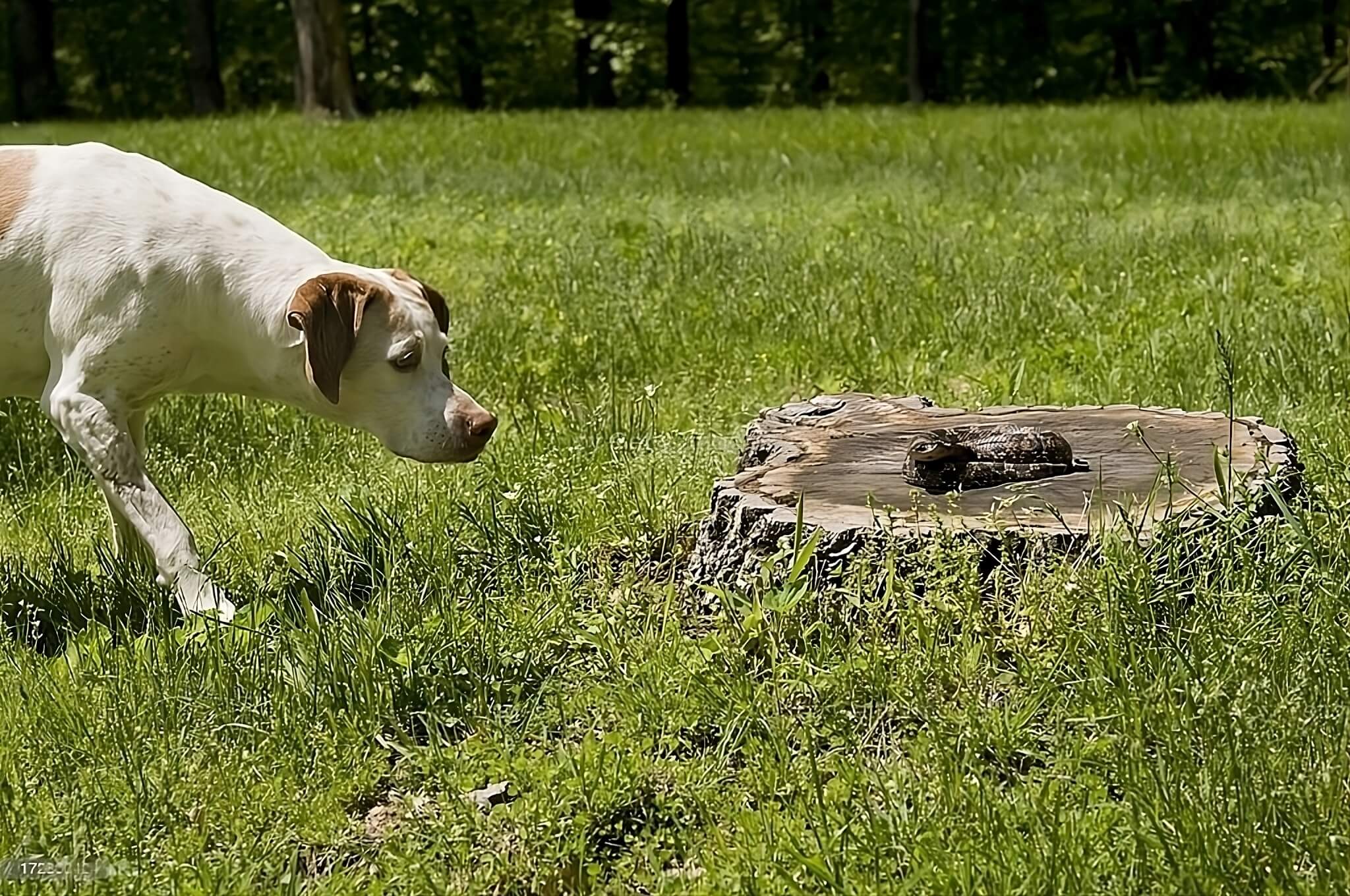In Short: Don't waste time. Rush to the nearest clinic that has Vitamin K available. Every second could cost your pet its life. Try to remember the color of the snake so that the vets can determine whether it's venomous; take a photo of the snake if possible.
Dogs and cats are curious animals, but when the object of interest is a snake, it can be dangerous. Knowing how to protect your pet and provide first aid can save its life.
Dangers of a Snake Bite:
- Tissue necrosis;
- Acute renal and hepatic failure;
- Destruction of blood vessel walls and hemorrhage;
- Convulsions;
- Fatal outcome.
Symptoms of a Snake Bite
The bite site usually displays 1-2 small puncture wounds, noticeable darkening, and inflammation. Bites often occur on the nose, lips, or front paws.
However, the bite may not be noticeable due to fur, so rely on other symptoms:
However, the bite may not be noticeable due to fur, so rely on other symptoms:
- Sudden cries. Since a snake attack is painful, the pet immediately starts to whine, screech, and howl.
- Swelling. The face or limb—depending on where the snake bit the pet—starts to swell noticeably.
- Systemic reaction to snake venom: pain, panting, swallowing difficulty (drooling), vomiting, gum bleeding, weakness, trembling, convulsions, tachycardia, and shortness of breath.
What to Do in Case of a Snake Bite?
Immediately go to the nearest clinic. Additionally, you are required to:
- Prevent the animal from moving. Carry the pet if possible. If the animal is large, put it on a leash and walk slowly to the car.
- Administer antihistamines orally or in solution: Prednisolone 1-2 mg/kg, Suprastin 0.5 mg/kg.
- Pain relief: Analgin 50% 1 mg/kg.
- Fluid therapy.
Prevention
- Be cautious when walking your pet in potentially dangerous areas.
- Avoid walking in grass or bushes where snakes may often hide.
- Train your pet to obey commands like "stop" and "come back" so it will listen to you in a critical moment.
In the case of a snake bite, immediate and proper medical care is critically important. Consult a veterinarian as soon as possible.
